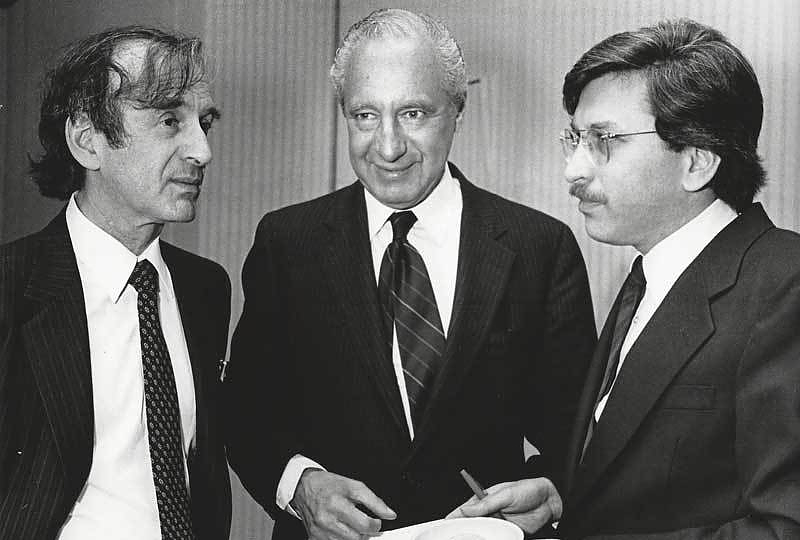We celebrated our 30th anniversary 2015! In honor of this milestone, we profiled 30 remarkable leaders who have partnered with AJWS to build a better world. These are but a few of the thousands who have raised their voices worldwide with our support, changing the lives of millions for the better.
In the mid-1980s, two visionary American Jews created American Jewish World Service.
Businessman Larry Phillips,* head of a major fashion conglomerate that began with his greatgrandparents’ pushcart business, felt isolated as the only Jewish trustee of an international relief organization. Laurence Simon, a young, idealistic international aid worker, had encountered sub-Saharan Africans who were surprised to learn that he was Jewish, leaving him with a strong desire to work openly as a Jew to aid others. Phillips and Simon both noticed groups of other faiths doing global humanitarian work and wanted to see American Jews do the same.
In 1985, they brought their skills and resources to the effort, and AJWS was born.
Operations started out of Simon’s apartment near Boston. As founding president, he spent the earliest days getting the word out to Jewish organizations and synagogues, recruiting leaders and laying the groundwork for programs in Africa and Latin America. Phillips served as AJWS’s earliest financial investor and first board chair. “It took a great deal of time,” Phillips said. “We slowly recruited dozens and then hundreds and then thousands of people who were interested in the cause philosophically and then monetarily.”
Simon recalls feeling like a rock star when the organizer of Live Aid, a historic concert benefitting the poor and hungry in sub-Saharan Africa, invited him onstage to announce AJWS’s first major grant—an airlift of medical supplies to Mozambique. “That really helped to put us on the world stage,” he said. “There was suddenly a wide recognition.”
Under their leadership, AJWS soon sent aid and support to some of the poorest countries in the developing world. AJWS funded organizations creating economic opportunities for the “untouchable” Dalit caste in India; responded to the 1986 volcano disaster in Colombia; and promoted new technology and methods for safely storing grain that helped small-scale farmers worldwide save their crops to stave off hunger.
During these early years, AJWS distinguished itself from other humanitarian organizations by supporting local people to create change—and doing so proudly and publicly as a Jewish organization inspired by the Jewish obligation to repair the world—tikkun olam.
“This was funded by Jews primarily, but the work in the field was done by local people, and that’s what became important,” Phillips said. “It’s not something you could impose from the outside. Primarily, working between the people in the U.S. and the local people in each of those countries helped spur the idea and spurs it to this day.”
Simon added, “When we entered humanitarian operations, it was with long-term commitment. There are very few [quick] victories in development. The organizations that really make a difference are those that are able to go into a situation and stay. Charity is important, but justice is the best guarantee that problems will be dealt with.”
After launching AJWS, Simon went on to become a professor of international development at Brandeis University, where he has founded programs and research centers and trained and inspired generations of human rights scholars.
Phillips, who died at the age of 88 in September of 2015, left a long legacy of leadership and lived a life dedicated to philanthropy and justice. He was the retired chair and chief executive of the fashion conglomerate Phillips-Van Heusen and was a proud and generous supporter of AJWS—with long periods as a board member—until the end of his life. “There is so much more hunger and poverty in the world,” he said in an interview. “We haven’t scratched the surface, but we’ve had, I think, considerable success.”
AJWS does all of its work today—from fostering emerging leaders in the developing world to taking leadership ourselves on issues of justice and human rights around the world—in the footsteps of our founders.
*Of blessed memory





